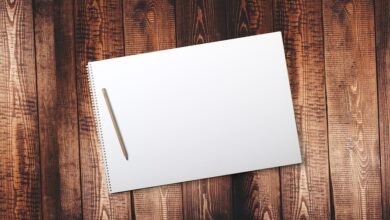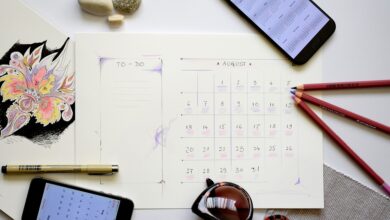
How a Planner Can Improve Your Communication Skills
In an increasingly busy world, effective communication has become paramount for success in both personal and professional realms. The ability to express one’s thoughts clearly and engage with others meaningfully can determine the trajectory of career advancement, personal relationships, and even academic success. One effective yet often overlooked tool for enhancing communication is the use of a planner. While planners are traditionally viewed as a means to manage time and tasks, they can also significantly refine communication skills. Here’s how employing a planner can help in developing these essential abilities.
Organising Thoughts
One of the primary functions of a planner is to help organise thoughts. The act of writing down notes, ideas, and plans enables clarity. When you document your ideas, they become more structured and coherent. For example, if you’re preparing for a presentation, a planner allows you to jot down key points, supporting arguments, and anecdotes. This method not only aids memorisation but also ensures that you can convey your message in a clear and concise manner.
By outlining your thoughts in advance, you can identify any gaps in your understanding or areas where you need more information. This preparatory step is vital for effective communication, as it equips you with a well-rounded understanding of the subject, allowing for a more engaging exchange with your audience.
Setting Communication Goals
A planner empowers you to set specific communication goals. Whether improving your public speaking skills or enhancing your ability to write more persuasively, having a targeted approach is crucial. You can break down these goals into smaller, actionable tasks that can be scheduled over time. For instance, if your aim is to become a more effective communicator in meetings, you could set aside time each week to practise speaking clearly, develop persuasive arguments, or even rehearse your delivery.
Furthermore, by tracking your progress in your planner, you can celebrate small wins along the way. This positive reinforcement encourages continued growth in your communication abilities. Regular reflection on your achievements and challenges can also provide valuable insights into your evolving communication style.
Enhancing Written Communication
Written communication is indispensable in today’s digital age, whether it be emails, reports, or social media posts. A planner can help hone your writing skills by encouraging regular practice. Dedicating a section of your planner for writing, whether it be daily journal entries or notes on interesting topics, fosters the discipline of consistent writing. The more you write, the more your style develops, leading to improved clarity and persuasion.
Additionally, using a planner allows you to review past communications. By revisiting previous emails or reports, you can assess your writing style, tone, and structure. This self-assessment encourages reflection on how your written communication can be enhanced, allowing you to identify areas for improvement.
Preparing for Conversations
Effective communication often hinges on preparation, especially when navigating complex conversations. A planner can serve as a valuable preparation tool, providing space for:
-
Question Formulation: Before entering a crucial conversation, whether in a professional or personal context, jotting down potential questions can enrich the dialogue. This not only demonstrates your engagement but can also prompt deeper discussions.
-
Key Points: Noting down essential points to discuss ensures that you stay focused and articulate. By deciding in advance what you want to convey, you can communicate your ideas more effortlessly.
-
Rehearsing Responses: A planner can facilitate the rehearsal of anticipated responses. To strengthen your communication skills, anticipate how the other party might respond and prepare counters or follow-up questions. This preparedness can alleviate anxiety and boost confidence during the interaction.
Fostering Active Listening
While effective speaking is vital, good communication also involves active listening. A planner can help by scheduling dedicated time for listening. For instance, consider allocating moments during your week specifically for engaging conversations with colleagues, friends, or family. Focus on being present in these discussions, noting key details in your planner afterwards.
This practice not only improves your listening skills but also encourages reflection on the conversation dynamics. Was the other party satisfied? Did they express themselves clearly? Understanding these nuances can enhance your ability to respond appropriately in future interactions, making you a more adept communicator.
Gathering Feedback
Feedback is an often underutilised but essential component of improving communication skills. By noting interactions in your planner, you can track occasions when feedback was given or received. This record acts as a valuable resource for identifying patterns—what areas are consistently highlighted as strengths or areas for improvement?
When you seek feedback after important conversations or presentations, make a note in your planner. Reflect on this input and consider how you can adapt your style and techniques to polish your communication approach. Incremental adjustments based on constructive feedback can lead to significant enhancements over time.
Networking and Relationship Building
In both professional and personal contexts, effective communication is pivotal for networking and relationship building. A planner can assist in managing your network by reminding you to reach out to contacts regularly. Whether it’s sending a simple message, organising a catch-up meeting, or sharing relevant articles, touchpoints nurture relationships.
Additionally, effective networking involves clear, concise communication about yourself and your goals. A planner can help you craft and refine your ‘elevator pitch’ or personal bio. Instead of fumbling through introductions, having a clear, rehearsed message not only improves your confidence but also ensures you leave a lasting impression.
Reducing Anxiety in Communication
Anxiety often hampers effective communication. A planner can serve as a preparatory tool that diminishes these feelings. By being organised and well-prepared, you can approach social interactions with confidence. Knowing that you have your thoughts structured and that you’ve rehearsed important points can provide a sense of assurance.
Moreover, dedicating time for mindful practices, such as journaling your feelings or reflecting on past communications, can help ease anxiety. Writing allows for the externalisation of worries and concerns, providing clarity and a path to resolution.
Building Emotional Intelligence
Communication is not just about words; it is inherently linked to emotional intelligence. A planner can enhance this skill by providing a space for self-reflection. By jotting down your emotions during various interactions, you can begin to recognise patterns. Are there certain situations that trigger discomfort? Is your tone aligning with your intent?
By becoming more aware of your emotions and how they influence your communication, you can adapt your style to suit different contexts. This adaptability is a key component of effective communication, fostering deeper connections with others.
Conclusion
In conclusion, a planner is far more than a tool for organisation; it can be a catalyst for improving communication skills. By helping to organise thoughts, set goals, prepare for conversations, and more, a planner provides a structured approach to honing the art of communication. Whether you’re aiming to appear more confident in meetings, enhance your written communication, or simply forge stronger bonds with others, incorporating a planner into your routine can yield transformative results.
Increasingly, as the world grows interconnected, sharpening communication skills will become even more vital. By embracing the potential of a planner, you invest not only in your time management but also in your capacity to connect with others effectively, fostering relationships that enrich both your personal and professional life.





